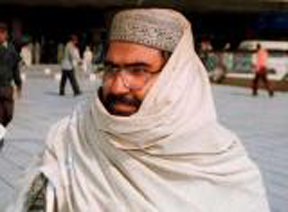 BEIJING: China today said differences over India’s NSG membership bid and designating of JeM chief Masood Azhar as a terrorist by the UN should not be “stumbling blocks” in developing ties and asserted that both sides must respect each other’s core interests and major concerns.
BEIJING: China today said differences over India’s NSG membership bid and designating of JeM chief Masood Azhar as a terrorist by the UN should not be “stumbling blocks” in developing ties and asserted that both sides must respect each other’s core interests and major concerns.
Appreciating Prime Minister Narendra Modi’s remarks that the rise of India and China offered an “unprecedented opportunity” for both countries, Chinese Foreign Ministry spokesperson Hua Chunying told a media briefing here that it is very important for both countries to have sound and stable cooperation.
“As for Prime Minister Modi’s positive remarks, we appreciate that. The two leaderships are in frequent touch with each other and had extensive exchanges,” she said.
“The consensus is that the common interests far outweigh our differences,” she said in reply to questions on Prime Minister Modi’s speech at the “Raisina Dialogue-II” yesterday in which he outlined his approach for an integrated neighborhood.
Asked about India’s concerns over China blocking India’s NSG membership bid and efforts to get Jaish-e-Mohammad chief Azhar banned by the UN, Hua said the two are multilateral issues and both sides should understand each other’s positions instead of pointing fingers.
“I think we need to try to understand from the other party’s position. Respecting each other’s core interests is our basic position. We have common interests and we also have differences,” she said.
“The key is to resolve these differences through friendly consultation, instead of pointing fingers at each other and accusing the other of neglecting core interests. For the two issues, they are specific issues, and they are not bilateral ones,” Hua said.
On the NSG issue, Hua said, “India’s application to the NSG bears on the authority of the NPT (nuclear Non- Proliferation Treaty) and China has been very responsible in approaching the issue.”
She said China wants a non-discriminatory agreement that is applicable to all the parties after which “we can discuss specific cases of application. The purpose is to uphold the sanctity of the regime.”
About the China blocking India’s efforts to get Azhar banned by the UN for his alleged involvement in the Pathankot terror attack, she said, “the technical hold is to uphold the effectiveness of the committee and show some respect to the rules of procedure of the committee.”
“We have been following these rules in maintaining contact with other countries. And this issue will be resolved when all parties reach consensus. We need more time for more thorough deliberations so that consensus is reached,” she said.
“This (Azhar) issue will be resolved when all parties involved reach consensus. We need more time for more thorough deliberations to reach consensus. So these two issues shall not be stumbling blocks for China-India to develop their relationship. We need to look further and seek common ground to remain and maintain our mutually beneficial cooperation and together seek a solution to these issues,” she said.
India’s application to get Azhar banned had lapsed after two technical holds put up by China in the 1267 Committee.
India is expected to file a fresh application this year.
“For the listing matter (in) 1267 committee our technical hold is to uphold the effectiveness of the committee. It shows our respect to the rules of procedure of the committee. We have been following these rules in maintaining contact with other countries,” she said.
“China has been stressing that under the strong leadership of the two countries, China and India relationship is growing stably and we have been expanding our cooperation. It is very important to keep our cooperation to grow in a sound and stable way. It will benefit the region and whole world and serve the common interests of the two sides,” Hua said.
On Prime Minister Modi’s assertion that both sides should show sensitivity and respect for each other’s core concerns and interests, Hua said, “China has been committed to respecting the core interests and major concerns of each other and to enhance mutual trust and cooperation.”
“For the differences and all the problems we made it clear that we will remain in touch with India and properly manage differences and resolve them through friendly consultations,” she said.
She also defended the USD 46 billion China Pakistan Economic Corridor (CPEC) while reacting to Modi’s remarks that only by respecting sovereignty of countries involved can regional connectivity corridors fulfill their promise and avoid differences and discord.
“In his remarks PM Modi did not directly mention the CPEC. On respecting the sovereignty of other countries, China always develops friendly and cooperative relations with other countries on the basis of five principles of peaceful coexistence, (of which) one of the principles is of respecting the sovereignty of other countries,” Hua said.
“We also follow these principles in promoting cooperation in all round way including regional connectivity,” she said.
“Regarding CPEC, this is a project that is devised for long term development and cooperation in various fields. It is of great significance in regional connectivity and trade cooperation. It targets no third country and it will not affect China’s position on (the) Kashmir issue,” –PTI





